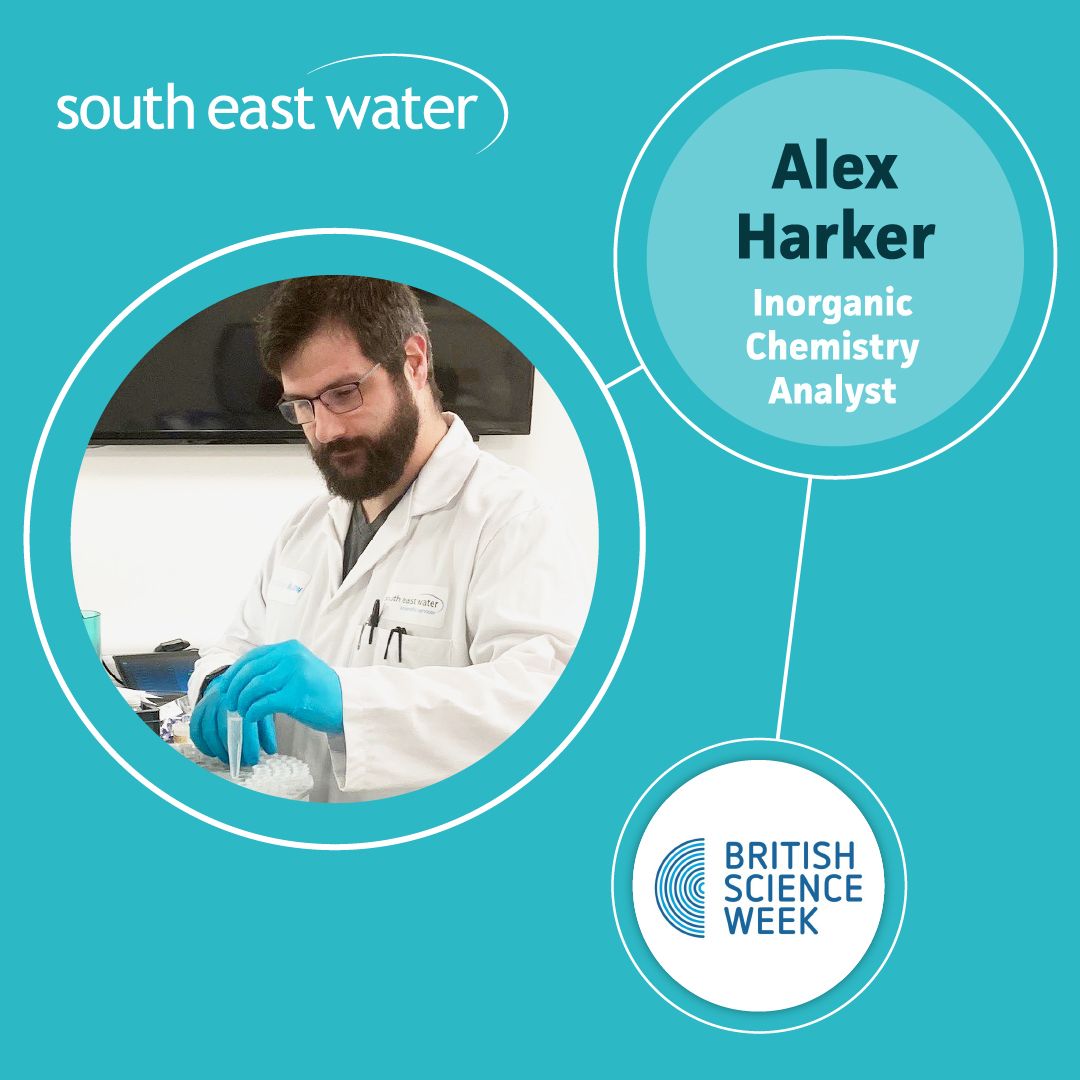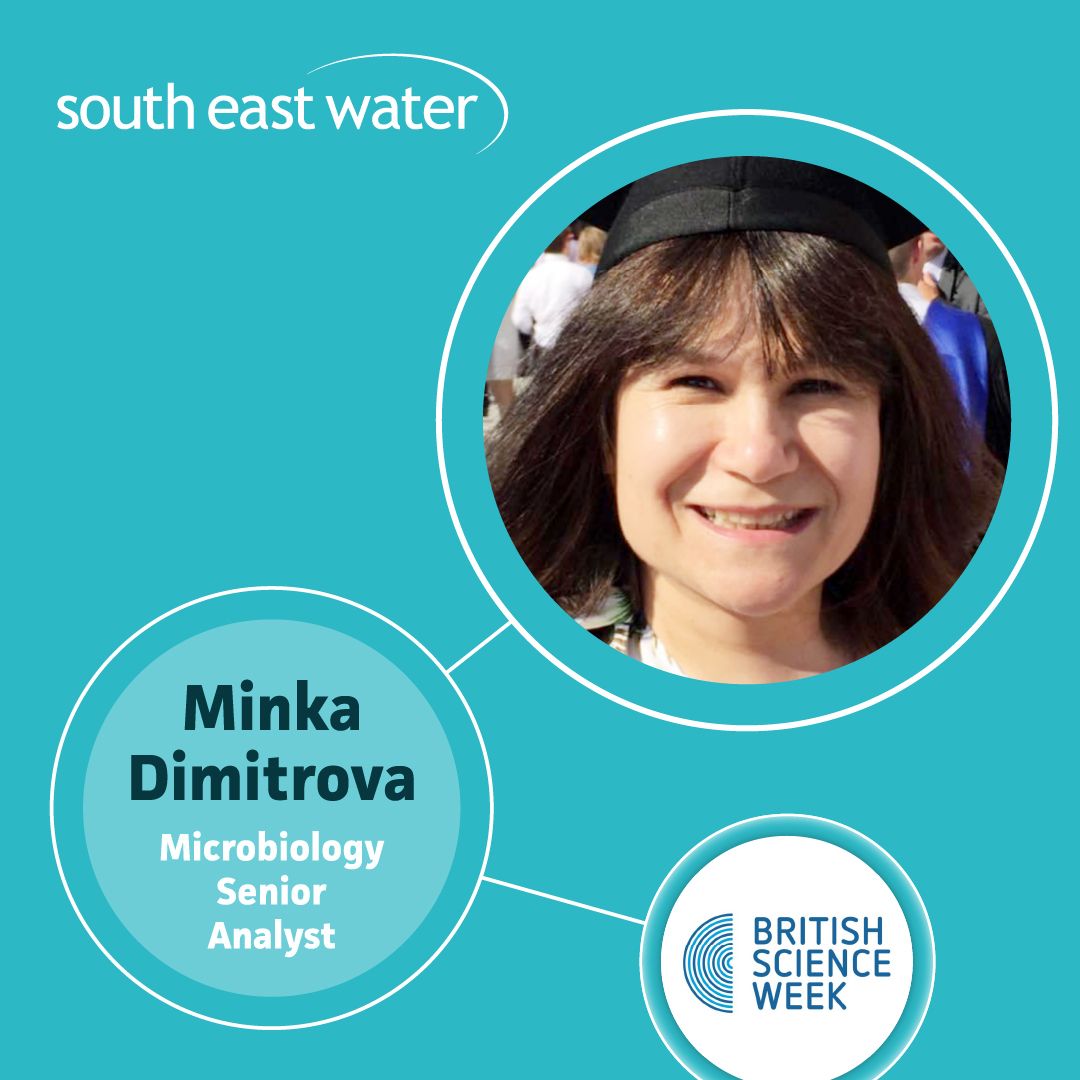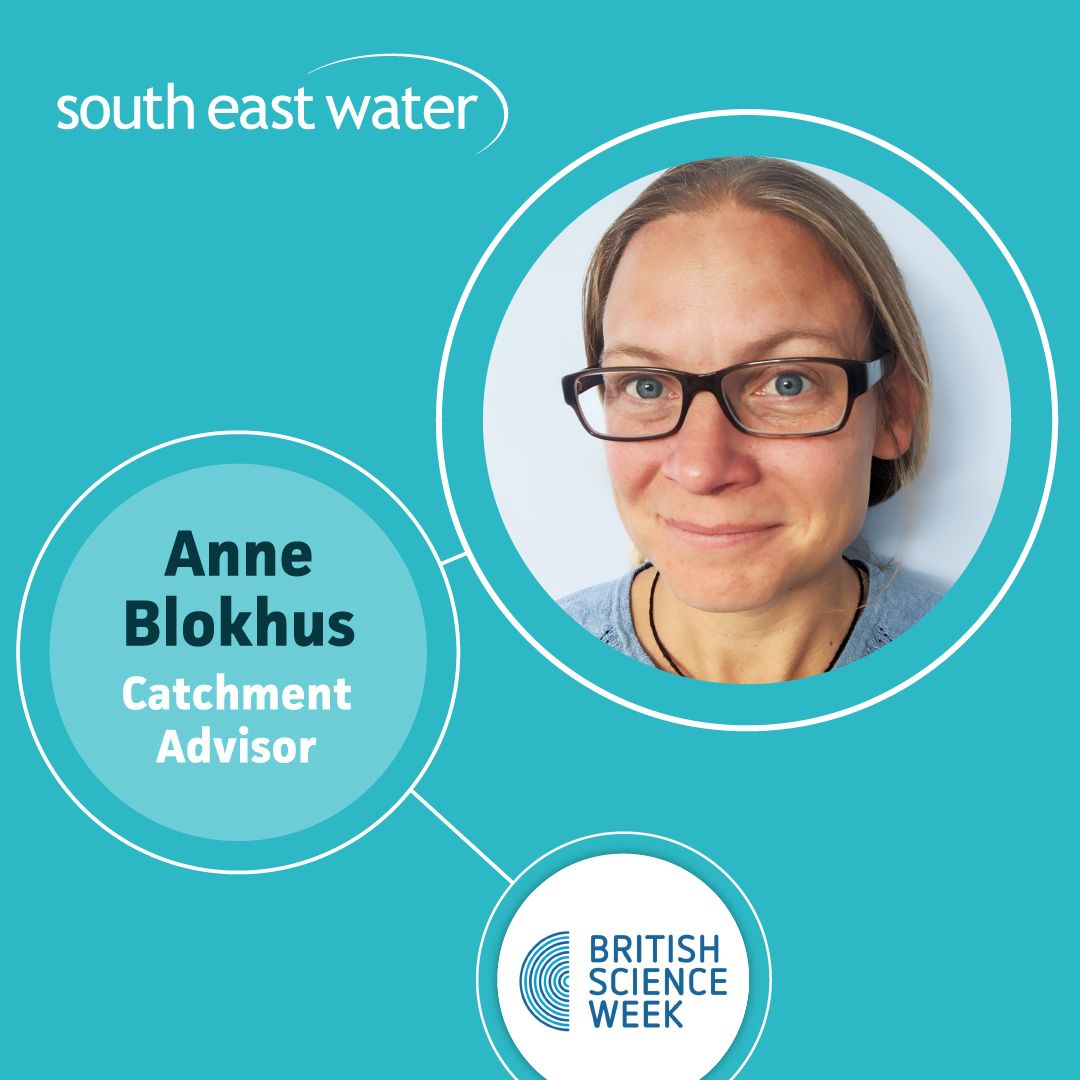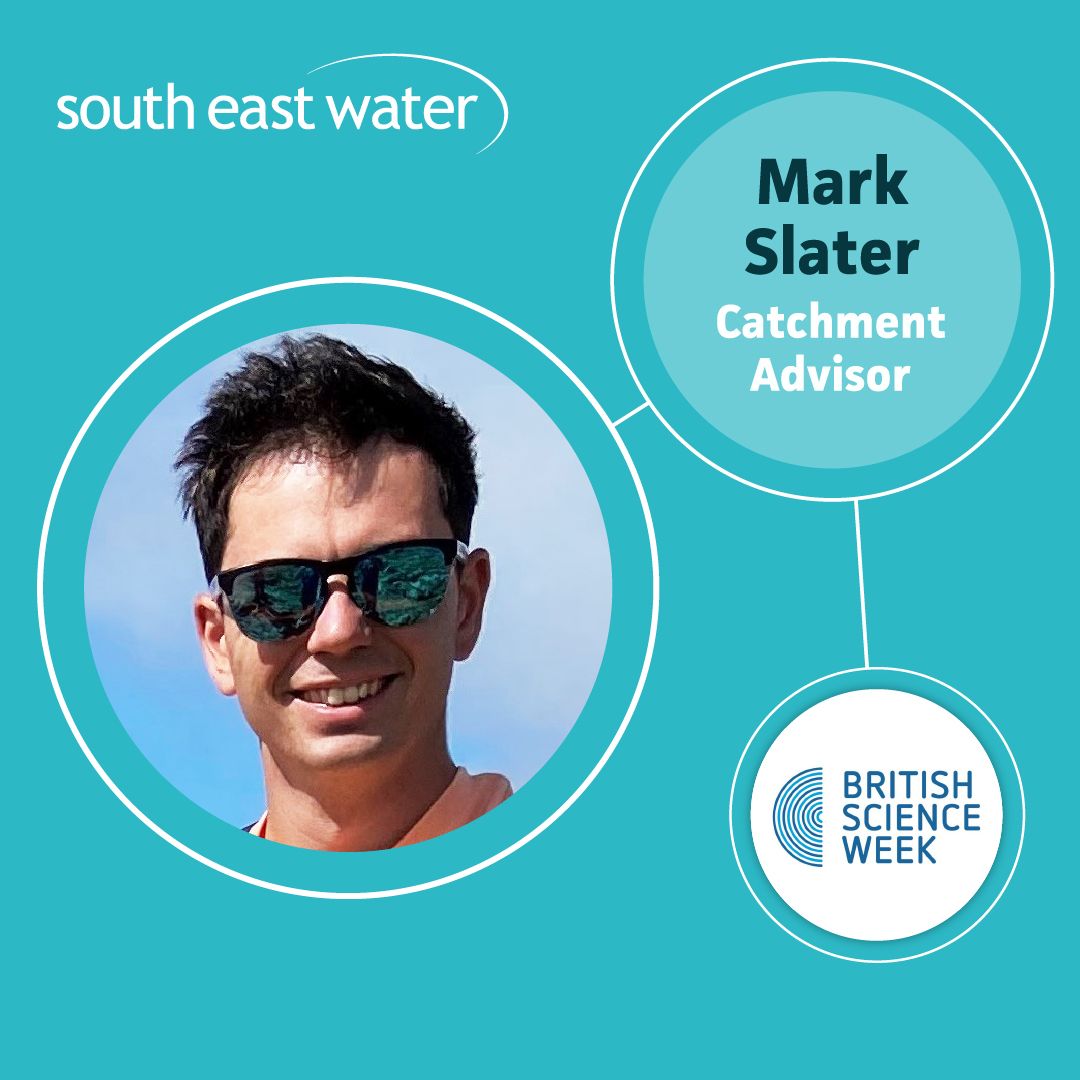Celebrating our scientists
British Science Week is a ten-day celebration of science, technology, engineering and maths, taking place between 11-20 March 2022.
We’re kicking off the week by introducing some of our South East Water scientists from our Environment Team and Scientific Services Centre.
We’ll be showcasing what they do to test your tap water and the processes involved, whilst taking care of the environment too.
Our state-of-the-art laboratory is accredited to ISO 17025 by the UK Accreditation Service (UKAS) and meets the stringent regulatory requirements of the Drinking Water Inspectorate.
Let’s meet some of the South East Water Laboratory Team:
Our Chemistry Technician - Maria Cocco

Maria is responsible for the cyclical checks of the South East Water laboratory’s equipment. As part of her role, Maria bottles up water samples for the Analyst, logs chemicals correctly, checks consumable and solvent stocks and prepares glassware for use; all essential tasks to ensure the smooth running of the laboratory.
Maria’s favourite part of her job is knowing she is making a difference while getting industry experience, and learning new analysis techniques. She says “It really feels great when I am able to help an Analyst with their job, even if I am doing something simple!”
Maria’s interesting science fact for you is “Although oxygen gas is colourless, its liquid and solid forms are blue!”
Our Inorganic Chemistry Analyst - Alex Harker

Alex is responsible for testingthe many water samples that are collected from more than 250 boreholes, six rivers and six reservoirs, and sent to his part of the lab.
He uses Ion Chromatography and TOC (Total Organic Carbon) analysers to measure the sample concentrations of Fluoride and Organic Carbon respectively. These machines hold hundreds of samples so attention to detail is an essential skill.
Alex’s favourite part of his job is knowing what he’s doing is helping to deliver clean and safe water to millions of households, including his own home!
Alex’s interesting science fact is that there are more trees on Earth than there are stars in the sky!
Our Microbiology Senior Analyst - Minka Dimitrova

Minka is responsible for the running of the South East Water Cryptosporidium laboratory; ensuring all tests are performed to a high standard within the required deadline. There are a variety of tests in Minka’s lab such as testing for Cryptosporidium (a parasite that can cause respiratory and gastrointestinal illnesses) Giardia, Identifying Algae and Microscopy examination. Minka also manages, trains and develops the laboratory team.
Minka’s favourite part of her job is the satisfaction of knowing how important her work is, and also getting to work with her team.
Her fun fact is “A study estimates that the human body consists of 39 trillion bacteria and 30 trillion human cells. In the past, researchers thought we were more bacteria than human with a ratio of 10:1, this calculation is probably close to true numbers but it is not a hard fact.”
Outside of the labs, we also have scientists within our Environmental Team:
Our Catchment Advisor - Anne Blokhus

Anne works with farmers and landowners, advising them on how they can lower the risk of diffuse pollution from agriculture and take care of their environment. She has a degree in Zoology and an MSC in Ecology and Conservation. Anne has recently worked on a project planting grass in between maize to stop the nutrients and sediment ending up in local rivers and affecting the quality of the water.
Our Catchment Advisor - Mark Slater

Mark works closely with farmers and landowners across Hampshire to find sustainable ways to reduce water pollution. He also investigates the declining water quality at a number of our abstraction sites to see if there is a way a catchment management plan would resolve the issue.
He has recently worked on a project encouraging farmers and landowners to sow special plants, known as cover crops, to use up leftover nitrogen after the main crop has been harvested and prevent it reaching the groundwater. This assists in improving groundwater at the source.
These are just a few of our hardworking scientists who take great care of our water and environment. We have over 50 scientists in our Scientific Centre and you can read more about their services on our website here(opens in a new tab).
Share this Article: